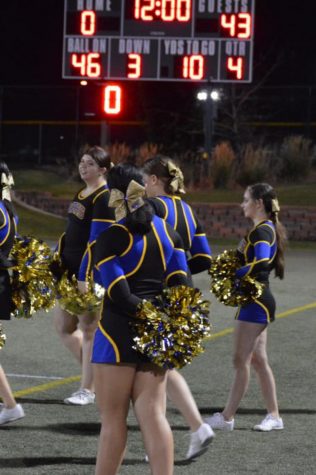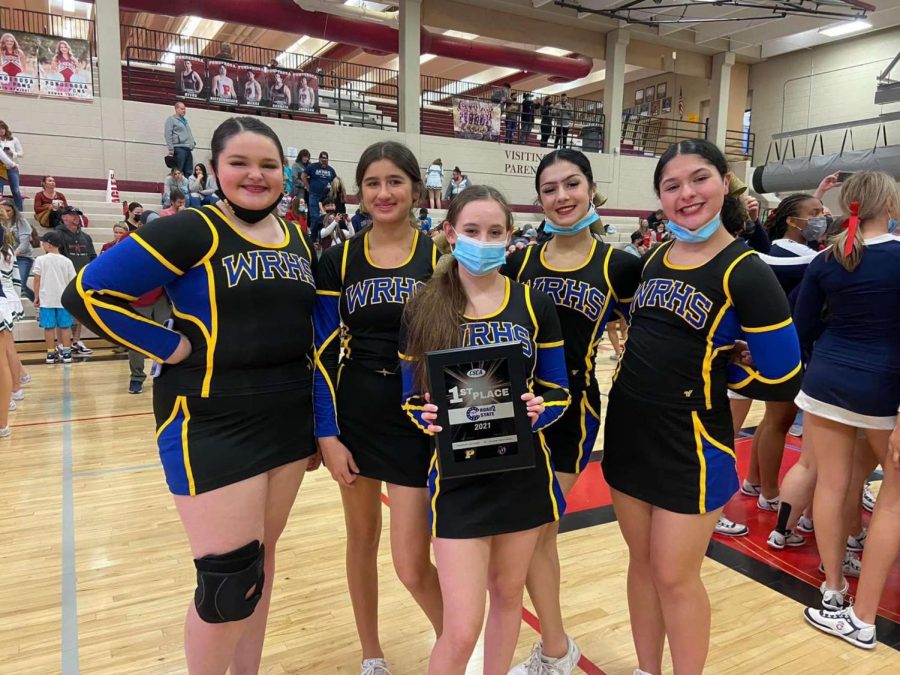Can You be a Cheerleader and a Feminist?
December 7, 2021

Origins of Cheer
No wonder so many have such squeaky feelings about cheerleading. The activity began as a way for girls to participate when school sports were only for boys. The assignment of standing on the sidelines, literally, while the men do the actual competition was a direct reflection of their inferior status at the time. Cheerleading was an activity given to girls to keep them from the field but still make them feel like they were contributing.
Did the sexist ideologies survive past the creation of Title IX (the education Amendment that protects students from being discriminated against based on gender)? Is this still the route of cheerleading?
What Exactly is Feminism
Feminism is about working through systems that were made to keep women from achieving equal treatment and support disempowerment. Feminism does not mean that you hate men, that you must burn your bra, or that every woman must become a CEO.
It is an intersectional approach that promotes advocacy for legal and social protections of diverse women’s rights and interests.
Can you be a Cheerleder and a Feminist?
Cheerleading has changed the stigma around the phrase “You throw like a girl.” As cheer teams today toss 150-pound girls up in the air, cheerleading has proved its athletic skill requirement.
While the sexist phrase has been turned on its head, a deeper level of sexism still exists today where we are viewing cheerleading as the same sport it was 75 years ago and not acknowledging its athletic evolution. Seventy-five years ago all that tryouts required were a loud voice to root for football players. Now most tryouts require standing back tucks, over splits, and handsprings.
Regardless of its origin, cheerleading has evolved into a competitive team sport, one that takes a lot of skills, strength, dedication, commitment to fitness, and vigorous athleticism.
Math teacher Cailin Foster, Wheat Ridge’s cheer coach said it best: “Cheer is multifaceted, not only do we support our peers but it requires incredible athleticism and the strong will it takes to push your body to its limits.”
Not to mention, cheerleading is dangerous. The maneuvers they perform involve team members getting thrown into the air, lifted off the ground, and so much more, and they can only rely on the strength of their teammates to protect them from being seriously injured or worse. Yet people dare to say that cheer isn’t athletic! Why would anyone want to stop an activity that girls have taken from its objectifying origin and turned it into a sport requiring strength, flexibility, and perseverance-something some men lack?
Cheerleaders shouldn’t have to use their athleticism to explain their “taboo” sport choice to anybody because ultimately that questioning is a direct attack to the feminist principles. While feminism often requires us to question and then challenge the status quo, we achieve nothing by making women feel guilty about something which genuinely makes them happy in the first place.
Cheerleaders choose to be cheerleaders. They want to be cheerleaders because it has evolved into a community that nurtures similar interests of members whether that be competing, stretching, or showcasing choreography. Therefore, they do not need to be feminists to swoop in and save the day because they are not forced into cheerleading–it’s a choice.
Cheerleaders have total autonomy in choice over their bodies and the stuff they participate in. That is why partaking in the sport does not deny traits of empowerment but instead promotes it by utilizing equal opportunity to do what they want to do and being able to do it.
Looking through this modern lens not only exposes how cheerleaders themselves do not challenge feminism but how instead, we do. The reluctance to accept cheer as a valid sport and not a project of misogyny births from assumptions, a dangerous weapon. Cheesy movies that categorize cheerleaders in a negative light that we all watched as children root implicit bias in our heads.
The unconscious bias that we have picked up as preteens force some of the following assumptions: that beacuse they cheerlead, it will be easier to have sex with, they do not have brains to become a scientist, since they cheerlead and wear skimpy clothing, they do not have a high self-worth, and the list goes on.
In order to change this narrative we need to be first educated on how cheerleading has evolved, second aware of how we contribute to the negative narrative of cheerleading via our own assumptions and, third be able to acknowledge that the choice of many cheerleaders to join the sport do not reflect their desire to engage in cheerleading’s past identity and morals.


Meg • Apr 18, 2023 at 3:24 pm
The ultimate cheerleading role is nothing than to be underpaid, sexualized object for male counterparts who are also athletes but paid well and not sexualized- this is where the inequality stems. Women’s sports don’t have male cheerleading squads in hot garments cheering them on! It’s not a matter of how physical the task is-